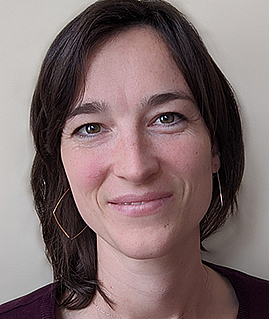Covering Coronavirus: Fighting the ‘Infodemic’
The pandemic has unleashed a tsunami of misinformation, lies and half-truths capable of proliferating faster than the virus itself. “Fake news” has swamped social media feeds, upended presidential briefings, and flooded vulnerable communities, hindering the fight against COVID-19 on everything from mask-wearing to vaccinations to the reality of the virus itself. The potentially fatal dangers posed by the “infodemic” are especially acute in communities of color, where long histories of racism and medical mistrust — combined with a lack of trusted messengers — have paved the way for COVID-19 misinformation and vaccine skepticism. In this webinar, we’ll delve into what one of our speakers has termed “the natural ecology of bullshit” — how to spot it, how it spreads and how to counter it. We’ll look at which groups suffer the greatest burden of deaths and illness from disinformation campaigns, and how journalists can better serve these communities. And we’ll discuss reporting examples, strategies and story ideas that incorporate these insights and effectively communicate to diverse audiences.
This webinar is free and made possible by The Commonwealth Fund, the National Institute for Health Care Management Foundation and The California Endowment.
Panelists

Carl Bergstrom is a professor of biology at the University of Washington. He uses mathematical models and computer simulations to study a wide range of problems in population biology, animal behavior, and evolutionary theory. His research is unified by the concept of information. In recent years, his work has looked at the spread of disinformation on social networks, and what we can do about it. He co-authored the book “Calling Bullshit: The Art of Skepticism in a Data-Driven World” (2020), with Kevin West.

Dr. Melissa Clarke is an emergency medicine physician and leader in population health for Fortune 500 companies, academia and hospitals. She has been a leading voice in the COVID-19 pandemic on issues of health equity for vulnerable populations. Frustrated by the onslaught of misinformation and confusion surrounding COVID-19, Dr. Clarke she has sought to mitigate the effects of the pandemic, especially among African-Americans. She is a co-founder of the group Black Coalition Against COVID-19, and is a member of the DC Health Scientific Advisory Committee, an expert group advising the vaccine distribution effort in the District of Columbia. She is a CNN medical contributor to “The Anna Cabrera Show,” a weekly medical contributor to the nationally syndicated Russ Parr Morning Show on Radio One, and the host and creator of “Excuse Me Dr! with Dr. Melissa Clarke,” a live weekly forum streamed on YouTube & Facebook where she provides urgent health information to listeners. She also serves as a physician consultant for 3M Health Information Systems. Dr. Clarke is a graduate of Harvard University, the University of California San Francisco School of Medicine, and completed her residency at Georgetown and George Washington Universities.

Rae Ellen Bichell is a Colorado Correspondent for Kaiser Health News, based in Longmont. Previously, she was a radio reporter covering the region for the Mountain West News Bureau and KUNC. Before moving to Colorado, Bichell worked for NPR. She spent brief but formative times in the newsrooms of Nashville Public Radio and KNKX in Seattle and has filed stories from Australia, Finland and Lithuania. She is a graduate of Yale University.
View Dr. Melissa Clarke’s slides here.
View Prof. Carl Bergstrom’s slides here.
Suggested reading & resources
- “Managing the COVID-19 infodemic: Promoting healthy behaviours and mitigating the harm from misinformation and disinformation,” Joint statement by WHO, UN, UNICEF, UNDP, UNESCO, UNAIDS, ITU, UN Global Pulse, and IFRC
- “Canaries in the Coal Mine: COVID-19 Misinformation and Black Communities,” by Brandi Collins-Dexter, Shorenstein Center
- “The COVID-19 social media infodemic,” by Matteo Cinelli et al., Scientific Reports
- “COVID-19 misinformation on Chinese social media – lessons for countering conspiracy theories,” by Kaiping Chen, The Conversation
- “What Childhood Vaccine Rates Can, And Can’t, Teach Us About Covid Vaccines,” by Rae Ellen Bichell, Kaiser Health News
- “Anti-Vaccine Movement, Racism And COVID-19 Collide In Colorado,” by Rae Ellen Bichell, KUNC
- “Rural Colorado Shows How Vaccination Messaging Is A Science In Itself,” by Rae Ellen Bichell, KUNC
- “A guide to overcoming COVID-19 misinformation,” by Sarah Gibbens, National Geographic
- “Fighting the coronavirus infodemic,” by Bryan Walsh, Axios
- “The Professors Who Call ‘Bullshit’ on Covid-19 Misinformation,” by Tom Simonite
- “Column: Black people still aren’t getting COVID vaccines. This pastor isn’t having it,” by Erika Smith, Los Angeles Times
- “YouTube has removed more than 500,000 COVID-19 misinformation videos since February,” by Coral Murphy Marcos, USA Today
- “Some Latino groups more wary of Covid vaccine, so messaging needs to be tailored, experts say,” by Nicole Acevedo, NBC News
- “KFF COVID-19 Vaccine Monitor: What Do We Know About Those Who Want to ‘Wait and See’ Before Getting a COVID-19 Vaccine?” By Liz Hamel, Lunna Lopes, and Mollyann Brodie Follow, Kaiser Family Foundation
- Black Coalition Against COVID-19
- “Russian Twitter Accounts and the Partisan Polarization of Vaccine Discourse, 2015–2017,” by Dror Walter et al., American Journal of Public Health (May 2020)
- “Vaccine Communication as Weaponized Identity Politics,” by David Broniatowski et al., American Journal of Public Health (May 2020)
